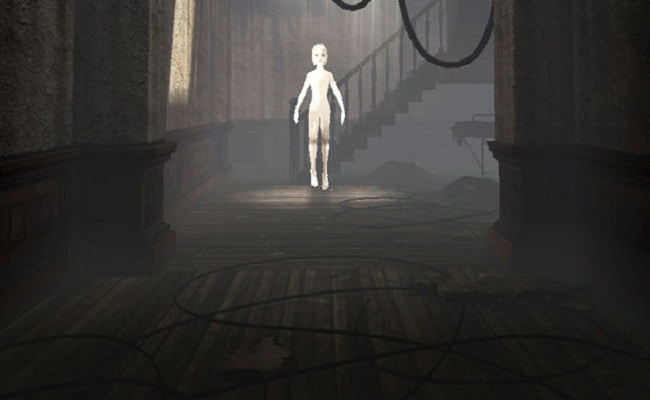Infinity Blade is among the best games on the iPhone, succeeding as a fantasy action game on a platform best known for the likes of casual and kiddie titles like Angry Birds and Smurfville. It made such a good use of the iPhone’s touch screen, and the Unreal Engine that it spawned a whole genre to itself. One of the better games in this new sub-genre is Dark Meadow.
Dark Meadow nimbly combines fantasy and horror with a modern setting. Players control the standard amnesic protagonist, who is only shown from the first person perspective. Who is this character that the Player controls? How did he come to awaken inside an abandoned mental hospital? To solve these and other mysteries, the Player must explore the creepy grounds of this asylum and do battle with an assemblage of demons, ultimately defeating a powerful witch who is somehow behind it all.
The game lets player swipe the screen to look around the 3D environments, then tap where they want to go, thus forgoing the use of virtual thumbsticks. When combat starts, enemies appear one at a time to do battle. At the start of a fight, a crossbow appears and players aim this by pulling back on the screen and sliding their finger around he bottom of the screen to aim. It’s deliberately a bit tricky, but the crossbow is really just there to soften up enemies before the swordplay begins.
As with Infinity Blade, the meat of the game is the hand-to-hand combat. Much like its elder cousin, Dark Meadow has players swipe the screen to attack, with the character swinging his sword in whatever direction the Player swipes. Players have to use the doge buttons to avoid enemy combos, patiently awaiting the right moment to strike.
While other games in this genre have better melee, Dark Meadow manages to be fairly exciting in its swordplay, but has the crossbow to augment the action. There’s a leveling up system as players earn Experience Points with each battle and earn gold too. This lets them upgrade stats and buy better loot.
All of these make for a fine game, but Dark Meadow really shines with its story, dialog and presentation. Throughout the adventure, the Player is guided by a madman who speaks over intercoms. This friendly, but insane, fellow isn’t particularly helpful, but does offer some hilarious anecdotes about living in a haunted insane asylum. This madman discusses how he hoards bacon bits, misses the company of women, and sometimes speculates that he might have gone mad“BWAHH HA HA HA HAHA HAAA!!!”.
The writers are clearly having fun with their game, but the comedy is only a small fraction of Dark Meadow. There’s an intelligent and scary story behind all the monster fights and insane ranting. Players will find scraps of notes and newspapers around the asylum and can collect these to fully unravel the history of the place, and the architect who built it (Frank Lloyd Wright is an obvious inspiration). The story is a bit reminiscent of the Silent Hill games, and is quite fun to piece together.
The business model for iPhone games is traveling down a very clear path. Great games launch at a fairly high price before taking a quick price cut after a month or so, and eventually end up going free-to-play. That’s what happened to Dark Meadow. While it was certainly worth a few dollars at launch, it went free-to-play recently and this has had some changes to the gameplay.
It’s mostly unharmed, but players are now pestered with ads, and are often given the option to use real-world money to buy in-game items. This extra items aren’t needed to progress in the game, though and players should find it quite rewarding to gather loot the old-fashioned way. Still, at the bargain price of “Free”, it’s hard to not recommend Dark Meadow, especially since it counted as a very good game even when it cost actual money to buy. Aside from the merits of being free, it’s also a fun title for fans of the Infinity Blade genre, and to gamers who enjoy survival horror games.

0 Comments